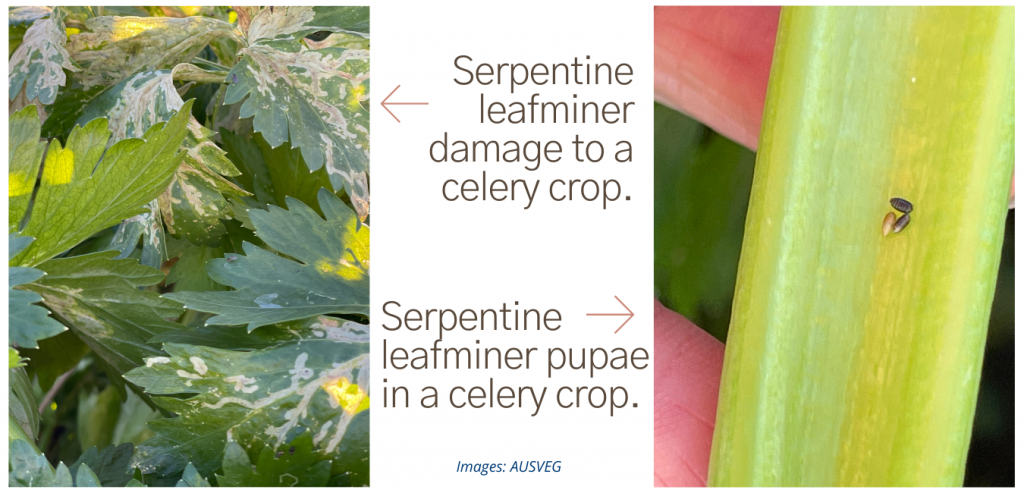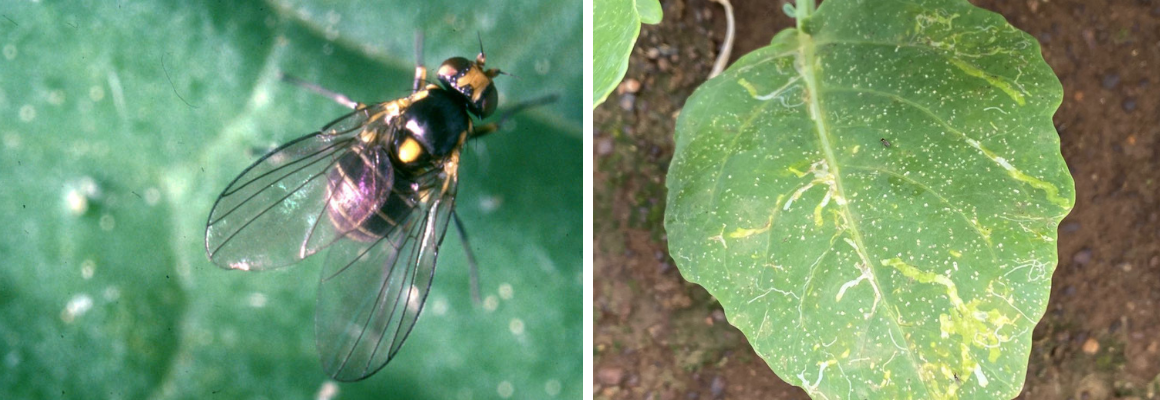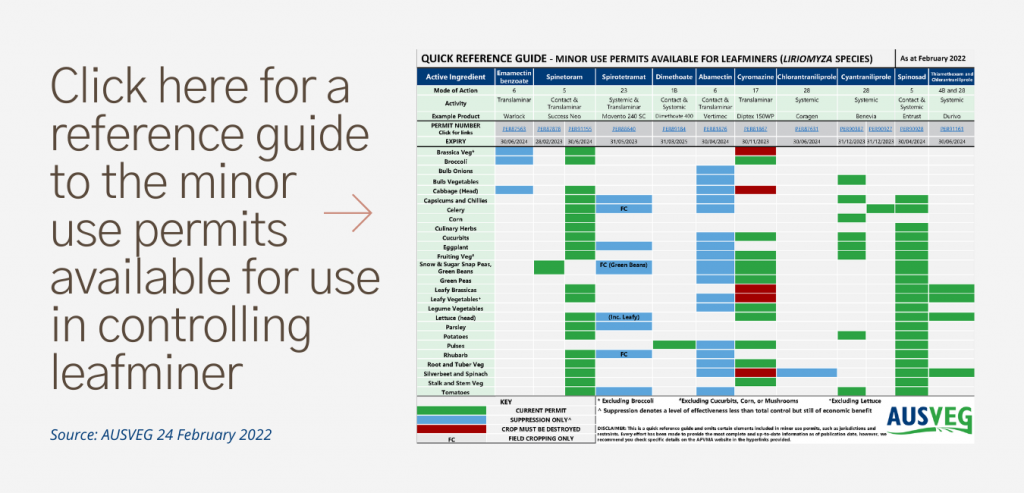Insecticide resistance detected in serpentine leafminer – Groups 1 and 3
Researchers at the New South Wales Department of Primary Industries (NSW DPI) have detected resistance to Group 1 and 3 insecticides in serpentine leafminer samples (Liriomyza huidobrensis) in Australia.
The detection was made by NSW DPI’s Biosecurity & Food Safety, Entomology Insecticide Resistance Group whilst analysing samples sent to their laboratory at the Elizbeth MacArthur Agricultural Institute. The discovery is of importance to the vegetable industry following the devastating effect that serpentine leafminer has had on crops following its arrival in Australia in 2020.
The appearance of resistance to chemical groups is strongly associated with overuse of those chemical groups. Growers should, where possible, rotate the chemical groups used any spray regime and avoid using Group 1 or 3 insecticides on properties where serpentine leafminer is present.
NSW DPI’s Dr Grant Herron – who leads the laboratory that identified the genes linked with resistance in the serpentine leafminer samples – is urging growers to use other control options and look to integrated pest management techniques when dealing with this pest.
“Ultimately, you always spray yourself into a control failure, rather than out of it,” Dr Herron said. “There is likely to be serious control issues with serpentine leafminer due to insecticide resistance.”
Both Group 1 and 3 insecticides attack the nervous system of non-resistant insects. However, Group 1 chemicals are divided into two types, 1a (carbamates) and 1b (organophosphates). As yet, the research has not been able to identify to which of these sub-groups serpentine leafminer has become resistant.
A project to examine and track insecticide resistance in Liriomyza species leafminers is soon to begin at NSW DPI under the direction of the Insecticide Resistance Groups’ Dr Duong Nguyen. The outcomes of this project will help growers develop the best possible management strategies for the pest.
For more information on serpentine leafminer visit the AUSVEG website here and be sure to follow us on Twitter at @biosecurityveg for the latest in biosecurity news.



